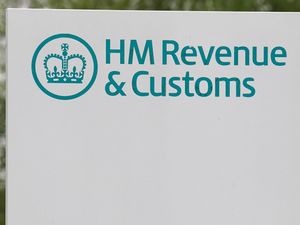West Midlands Police morale among lowest in country
Police morale in the region is among the lowest in the country with increasing workloads and low pay major concerns among officers, according to a new survey.
The pay and morale survey put together by the West Midlands Police Federation has revealed that 96 per cent of 1,082 staff who took part in the survey said that force morale was low, while 66 per cent said they were suffering from low personal moral.
It comes just weeks after Tom Cuddeford, chairman of West Midlands Police Federation, said it was time for the Government to show 'support and respect' for front line officers and backed calls for a 2.8 per cent pay increase.
Reasons given for low morale in the survey include how the police are treated as a whole, pay and benefits, health and wellbeing, work and life balance, treatment by senior managers and opportunities for development and promotion.
Steve Grange, secretary of the federation - which represents the force’s constables, sergeants and inspecting ranks - said that cuts to the force have resulted in the hit to morale.
He said: “We have been saying for some time that police officers are feeling demoralised.
“The cuts to force budgets have meant officer numbers have been severely hit.
"We have lost 2,000 officers in the last seven years.
"With fewer officers to go around, we are finding that our members are run ragged as they try to do the job they joined to do – fighting crime, keeping the peace and protecting our communities.
“Despite a fall in our numbers, we have seen no corresponding decline in demand for our help – in fact we have seen the opposite."
Despite the low morale expressed by staff through the survey, Mr Grange added that he felt officers still 'do not want to let the public down', to a point where it can be detrimental to their health.
He said: "As the service of first and last resort, we never say no and find ourselves picking up the pieces when other agencies are unable to respond due to cuts to their own budgets.
“Officers do not want to let the public down but they are feeling the strain; their mental and physical health is suffering as they try to do more with less and at the same time they feel undervalued by the Government."
The statistic that 66 per cent of respondents said they were suffering with low personal morale puts West Midlands Police in the top three UK forces for that category.
The 1,082 staff who responded represent a response rate of around 16 per cent, below the national average survey response rate of 25 per cent.
Mr Grange said: “While the response rate is quite low, I think that the results do represent the views of the majority of our members.
“Sadly, I think officers are feeling so disheartened and demoralised that they are not even filling out these surveys because they do not feel that their views will be taken into account.”
In response to the survey results Ali Layne-Smith, director of people and organisation development at West Midlands Police, said: “Being a police officer is an incredibly difficult job and as an employer we are very conscious of our responsibility to look after our staff and offer support when it is needed.
“Officers routinely put themselves in dangerous situations to protect the public and can face distressing scenes on a daily basis.
“Our officers and staff have access to a free, confidential 24/7 telephone counselling and support service to help them.
"They can self-refer at any time of the day or night, and, where needed, have access to one-to-one counselling sessions to help them through difficult times.
"In addition we have increased funding for occupational health support especially for issues relating to mental health.
“We’ve had over 3000 applications to join us this year.
"The survey also shows that there is a great deal of pride in working for the police, which motivates officers to put themselves in harm’s way on a daily basis.
"As an organisation we are absolutely committed to offering our officers and staff appropriate support.”




